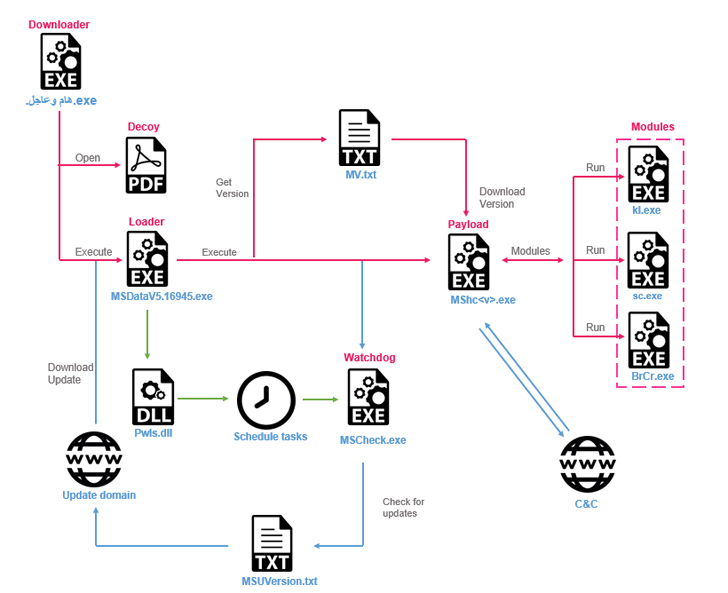[ad_1]
A new custom backdoor dubbed Stealth Soldier has been deployed as part of a set of highly-targeted espionage attacks in North Africa.
“Stealth Soldier malware is an undocumented backdoor that primarily operates surveillance functions such as file exfiltration, screen and microphone recording, keystroke logging and stealing browser information,” cybersecurity company Check Point said in a technical report.
The ongoing operation is characterized by the use of command-and-control (C&C) servers that mimic sites belonging to the Libyan Ministry of Foreign Affairs. The earliest artifacts associated with the campaign date back to October 2022.
The attacks commence with potential targets downloading bogus downloader binaries that are delivered via social engineering attacks and act as a conduit for retrieving Stealth Soldier, while simultaneously displaying a decoy empty PDF file.
The custom modular implant, which is believed to be used sparingly, enables surveillance capabilities by gathering directory listings and browser credentials, logging keystrokes, recording microphone audio, taking screenshots, uploading files, and running PowerShell commands.
“The malware uses different types of commands: some are plugins that are downloaded from the C&C and some are modules inside the malware,” Check Point said, adding the discovery of three versions of Stealth Soldier indicates that it’s being actively maintained by its operators.
Some of the components are no longer available for retrieval, but the screen capture and browser credential stealer plugins are said to have been inspired by open source projects available on GitHub.
🔐 Mastering API Security: Understanding Your True Attack Surface
Discover the untapped vulnerabilities in your API ecosystem and take proactive steps towards ironclad security. Join our insightful webinar!
What’s more, the Stealth Soldier infrastructure exhibits overlaps with infrastructure associated with another phishing campaign dubbed Eye on the Nile, which targeted Egyptian journalists and human rights activists in 2019.
The development signals the “first possible re-appearance of this threat actor” since then, suggesting the group is geared towards surveillance against Egyptian and Libyan targets.
“Given the modularity of the malware and the use of multiple stages of infection, it is likely that the attackers will continue to evolve their tactics and techniques and deploy new versions of this malware in the near future,” Check Point said.
[ad_2]
Source link



